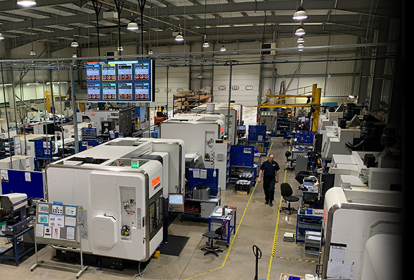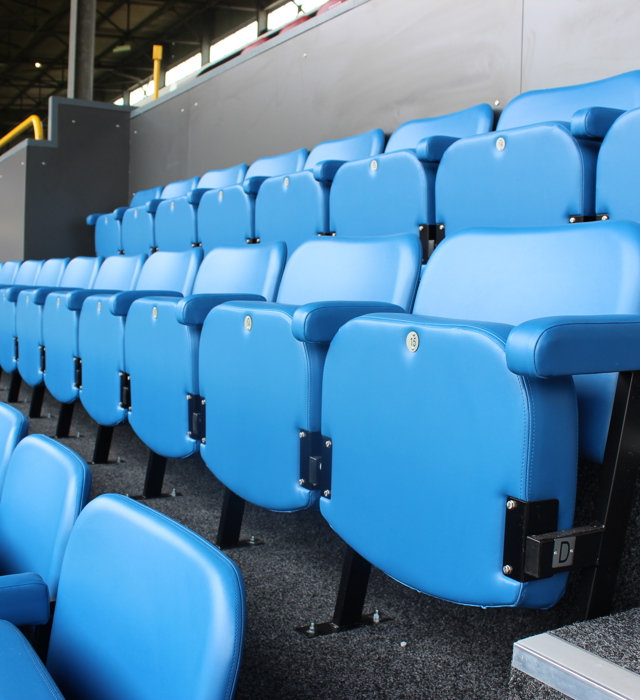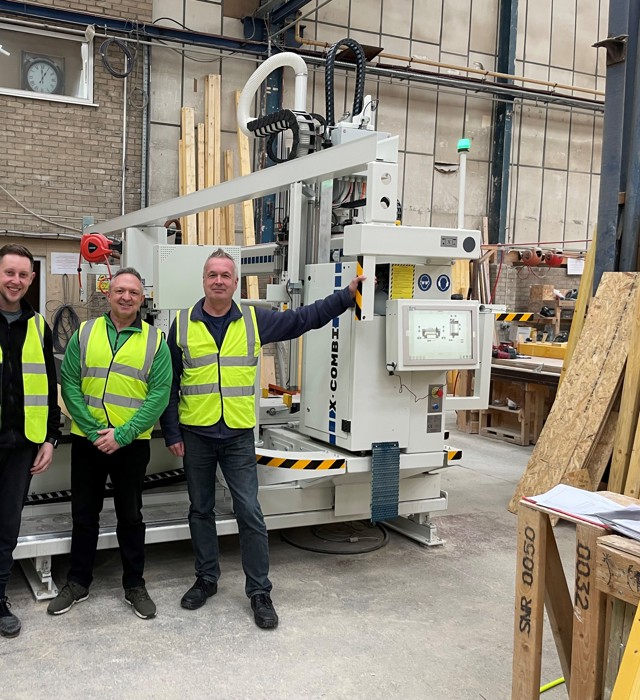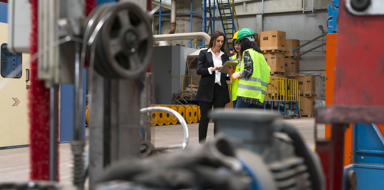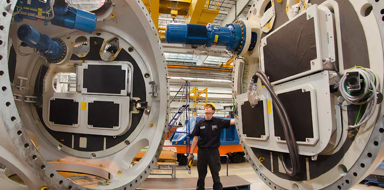An innovative engineering firm is working with Made Smarter to implement an ambitious digital strategy forecast to deliver a 20% productivity increase and reduce carbon emissions by 10%.
Beverston Engineering, based in Knowsley, is a manufacturer of components for safety critical industries such as aerospace, pharmaceutical, and oil and gas.
It has secured support from Made Smarter for two phases of its digital strategy.
The first project, now complete, focussed on connectivity and digital infrastructure, upgrading IT systems and using IIoT to establish real-time monitoring of the factory and enable capability of handling big data transfer between its systems.
It also created a ‘productivity control room’ - a bank of 18 big screens in the centre of the factory displaying real-time factory productivity and efficiency to the workforce.
A second project will create a digital manufacturing management system giving the business insights through data analysis.
Real-time monitoring and data analysis will improve machine uptime by 20%, the equivalent to 11,040 hours a year.
More efficient machine use is estimated to reduce annual carbon emissions by more than 10% - the equivalent of 18.5 tonnes.
Managing director Rod Wah said Beverston’s progressive plans were a major factor in winning a lucrative long-term contract with Rolls-Royce Control Systems.
Covid-19 has had a significant impact on our business and the wider industry. Tough times lie ahead. But my philosophy is that to survive you must drive your business forward. Made Smarter has enabled us to pursue and accelerate our plans to create a smart factory.
Rod Wah, managing director of Beverston Engineering
Launched in 1974 to manufacture tool making, Rod Wah took over the business in 1981 and developed new opportunities in the aerospace industry.
Since then it has invested in technology to expand sectors to pharma, oil and gas and power, and has a 60-strong workforce and turnover of £5.2m.
Beverston began its digitisation journey three years ago after embarking on a knowledge transfer partnership with Liverpool John Moores University to deep dive into how technologies could help it achieve its business goals.
The company then looked for support and advice from Made Smarter to develop a digital strategy to adopt those technologies.
Beverston’s challenge was its lack of connectivity between its ERP system and 18 machines on the factory floor.
“Our current state is that we don’t have real-time visibility for monitoring production,” Rod explained. "We monitor production based on manual inputs of jobs, production and labour in a manufacturing execution system on the factory floor. So manual intervention opens us up to human error.
“Analysing and calculating our performance using the ERP system is also very time-consuming and involves sifting through lots of information to pick out what is important. Our efficiency sits around 76 percent on average across the year.”
“We want a system that automatically captures the data being produced by our machines and processes, and then tells you what you need to know then and there, not weeks after the event.”
The starting point for Beverston was laying the foundations for connectivity.
The IT infrastructure was upgraded with a dedicated server and database to run the monitoring platform to reduce data traffic, data handling and storage.
IIoT connectivity was achieved by installing the iSmart Smooth Monitor AX System that collects data from its range of machinery and transmits it to the central database.
The real-time status of each machine is presented on a platform to give Beverston overall visualisation of factory status. This can also be monitored remotely via a smartphone or tablet.
The next phase is to create a digital manufacturing management system, bringing together all production processes for monitoring and enabling the automation of repetitive activities.
This involves upgrading its ERP system to integrate with third party systems and platforms for real-time monitoring and data analytics.
By introducing the ‘productivity control room’ and making operators aware of how their time management affects machine use, Beverston aims to increase productivity efficiency.
It estimates that it can increase the current machine use rate in the factory floor, currently 38,640h/year and 70 percent of machine available hours, by five percent, the equivalent of 2,760h/year.
Beverston forecasts that using the sensors for real-time monitoring it will be able to measure efficiency more accurately and further improve it by 15%.
The new system will also be able to store data captured in the early phases of the project for future analytics, which can be used for predictive maintenance and diagnostics for even more gains.
Beverston also plans to monitor and display environmental conditions, energy consumption and CO2 footprint in the factory in real-time.
Rod said: “This project will have a transformational impact on our business, not just in terms of being more productive and generating revenue growth, but by reducing our energy consumption and our CO2 footprint, a responsibility we take very seriously.”
The new systems will upskill the current workforce and create more technical jobs.
By laying these foundations Beverston will become a shining example of a smart factory capable of continuous improvement as it further enhances its data capture and analysis.
Future projects include digitally capturing measurements from the shopfloor to improve quality and using virtual reality in the planning process.
Rod said: “This investment aims to futureproof the business by making us more competitive and improve our digital readiness to cope with current and potential customers’ demands, and further integration with the supply chain.”


